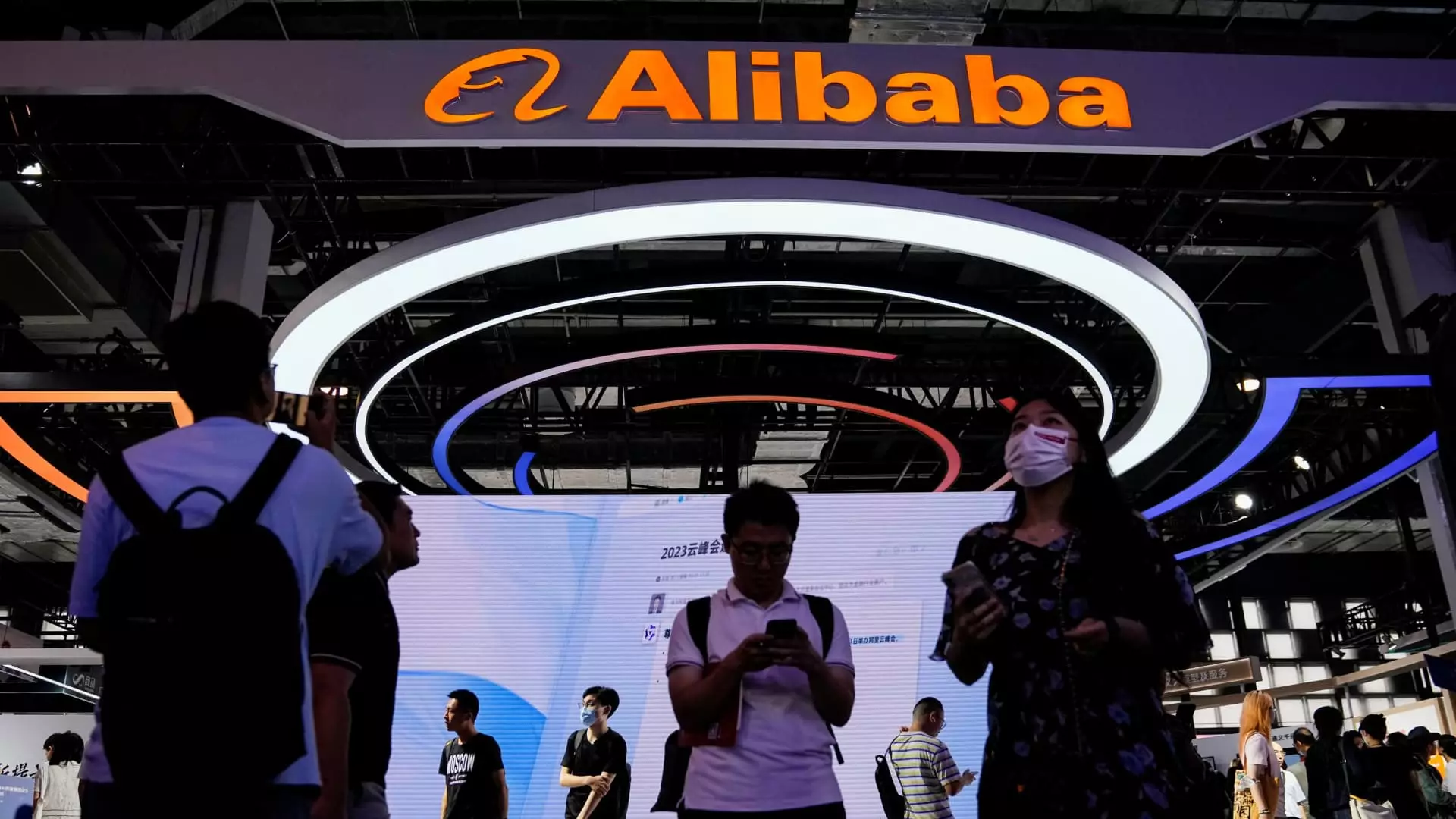The stark contrast between the performance of Chinese and U.S. stocks is becoming increasingly palpable, marking a significant shift in the investment landscape. As financial analysts wrestle with the implications of these differences, the recent performance of the S&P 500—plunging into correction territory—highlights a concerning trend for American investors. Meanwhile, the MSCI China index has emerged as a phoenix, experiencing its most spectacular surge in history. Factors underlying this growth are multifaceted, with a critical focus on the expanding influence of artificial intelligence. The situation beckons a grim introspection for investors reliant on U.S. stocks while attempting to navigate these turbulent waters.
The “Fab Four” Redefining the Market Landscape
Central to the renaissance of Chinese markets are the so-called “Fab Four”: Baidu, Alibaba, Tencent, and Xiaomi. These titans have not only adapted to but are thriving in the AI-driven economy. Baidu and Alibaba are valiantly competing with tech giants like OpenAI, showcasing innovations that capitalize on their expansive user bases. The momentous claims that their AI capabilities can rival established leaders are indicative of a newfound confidence mirroring the legendary ascent of The Beatles, as investment frenzy surrounds these firms. The emergence of AI-driven tools like Baidu’s Ernie and Alibaba’s enhanced Quark browser exemplify a strategic pivot that spells optimism for the Chinese market, even as U.S. tech stocks flounder.
AI: The Catalyst for a New Era
Artificial intelligence is not merely a buzzword in this context; it is rapidly becoming the bedrock of market growth. Analysts from HSBC have pointed out a distinct similarity in the trajectory of AI investments in both the U.S. and China, suggesting that China’s stock market could echo the AI-led rally that has bolstered U.S. stocks over the last two years. However, the critical difference lies in the valuation gap—the potential for Chinese AI stocks to catch up with their U.S. counterparts is a tantalizing prospect for savvy investors. The early adopters of AI technologies in China are already experiencing significant returns, prompting fresh interest from both domestic and international investors alike.
Increased Investor Confidence Amidst U.S. Concerns
Interestingly, as skepticism regarding the U.S. economy mounts, investor interest in Chinese stocks is intensifying across various demographics. Record net purchases of Hong Kong stocks by mainland Chinese investors speak volumes about a growing confidence in the local market. In contrast, short-term hedge funds in the U.S. have been grappling with a downturn, causing alarm signals to ring out among electronic tickers. The proliferating realization that the U.S. markets may continue to struggle opens the door for an exponential shift towards Chinese stocks. The allure of immediate gains could keep the momentum alive, propelling the Fab Four and their ilk further into the limelight.
The “Lagnificent 7” vs. the Rise of the “Fab Four”
Formerly lauded as the “Magnificent 7,” the group of U.S. tech stocks—comprising the likes of Alphabet, Apple, and Tesla—has now encountered a reality check, indicative of a trend that’s painfully hard to ignore. This shift in market dynamics, as described by Bank of America, has rebranded these once-revered companies as the “Lagnificent 7.” The staggering $3 trillion loss in market cap they have experienced stems from investors rediscovering their priorities, abandoning bygone giants in favor of more dynamic and appealing players in the global arena.
A Cautious Climate of Optimism
The apparent contradictions in capital flows—Americans gravitating towards international stocks while disregarding their domestic tech giants—underscore a cautious climate of optimism surrounding Chinese equities. In the investor’s mind, the stakes have never been higher. Critics of the current American economic climate remind us that a 20% drop in stock values may be necessary for traditional consumer sentiment to bear the brunt of the impact. As discussions evolve, the increasing allure of AI-powered companies from China stands as a litmus test for progress amidst declining confidence in American markets.
Ultimately, the tale of Chinese stocks isn’t just one of numbers and metrics; it’s a story of resilience and the shifting paradigm of global finance. Those who underestimate the capacity of the “Fab Four” to redefine the market landscape do so at their own peril.

